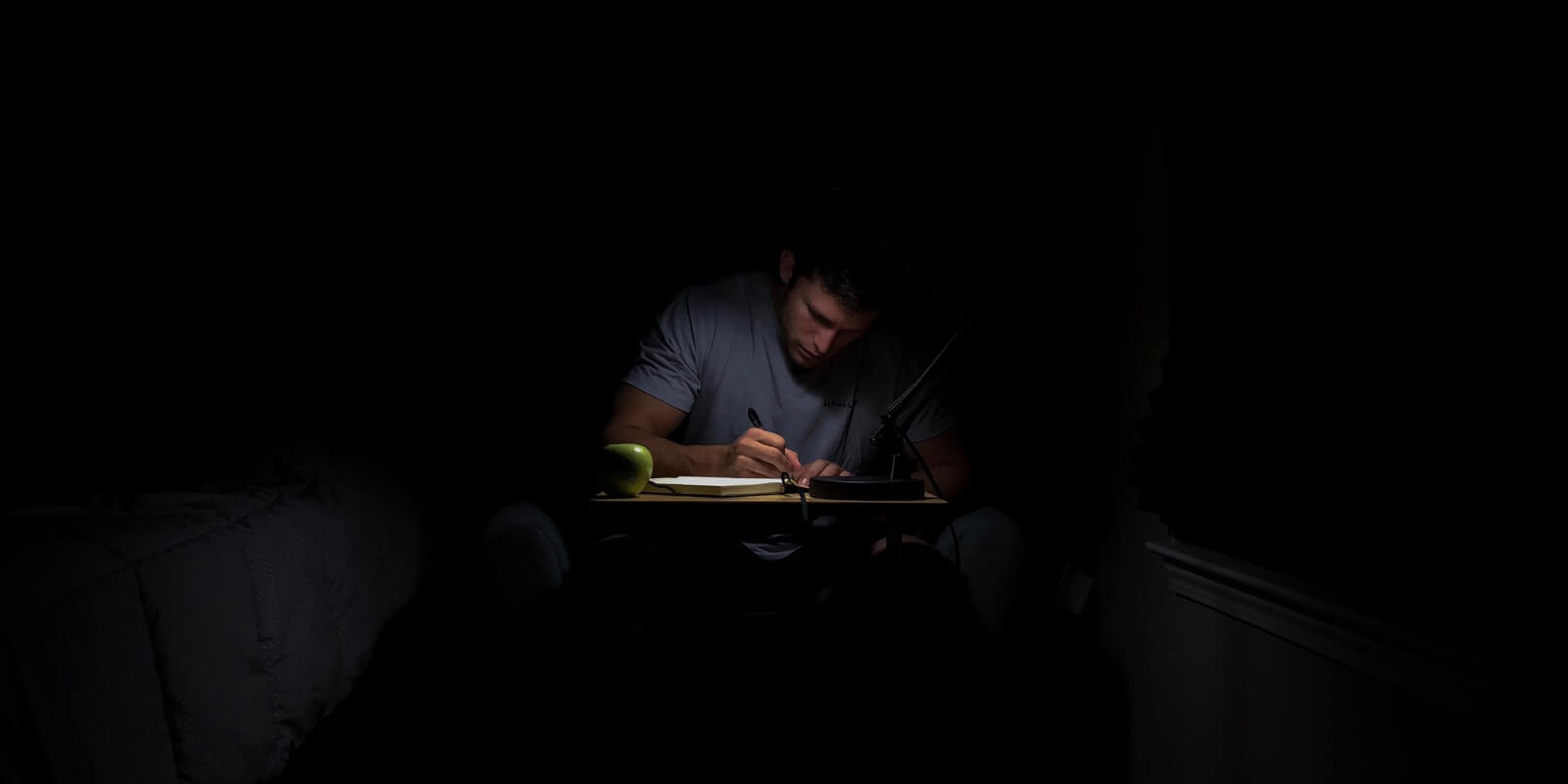Nobody likes feeling bad.
From a mild twinge of hunger or throbbing headache to having a broken bone set, feeling bad is something we all like to avoid. And thanks to modern technology, we’re increasingly able to do just that:
- Headache? Pop some Tylenol.
- Sinuses flaring up? Try some Allegra.
- Knee still bothering you? Arthroscopic surgery doesn’t even leave a scar!
Of course, it’s not just that we dislike feeling bad psychically—we don’t like feeling bad emotionally either. Every day people walk into therapists’ offices hoping to be less anxious, less depressed, or less angry. And therapists have their own “technologies” for pain relief: coping skills, reframing of past traumas, or simply a compassionate ear to listen.
There’s also medications to ease emotional pain or discomfort: Antidepressants to feel less down, anxiolytics and sedatives to feel less up, and mood stabilizers to feel more, well, stable.
And perhaps most popular of all, we look to self-help authors and personal development coaches for tips, guidance, and inspiration to help us feel better. Much of what I write and teach, myself, falls into this category.
Clearly, we all want to feel better. And each of these approaches can be quite helpful.
But as is often the case with any tool, how and why we use it matters…
- Those painkillers that began as an occasional relief from back pain can slowly turn into a serious addiction as they become used to deal with a wider and wider range of pain.
- That weekly therapy session that started as a way to get a handle on social anxiety can become an unhealthy form of dependence and reassurance-seeking.
- That initial search for some tips to deal with procrastination at work has led to years of compulsive self-help consumption as a way to avoid the deeper psychological issues related to work and focus.
To be clear, there’s nothing necessarily wrong with any of these tools—from antidepressants to self-help books. But there is a dangerous mindset that often lurks behind our interest in all of them: The unwillingness to feel bad.
In the rest of this article, I’ll make the case that the unwillingness to feel bad in the short-term frequently leads to feeling much worse in the long-term. On the other hand, the willingness to feel bad emotionally is usually the key to feeling good in the long-term.
Long-term rewards usually require short term sacrifices
As humans, one of our biggest blind spots is the difficulty we have making decisions based on long-term goals and aspirations and instead behaving according to more immediate and short-term impulses and desires.
Case in point, my relationship with Apple products:
- Did I really need a new iPhone this year? Definitely not.
- Would the money I spent on it be better off in a savings account or investment fund? Yup.
- Did I refrain from buying the iPhone and save the money instead? Nope.
Short-term desire: 1. Long-term goals: 0.
Now, failing to act according to our long-term best interest isn’t simply a matter of moral failing or effect of poor self-control. There are good reasons why we’re wired biologically to prioritize short-term pleasure and avoid short-term pain. For hundreds of thousands of years, we evolved in a world where simply staying alive was a 24/7 struggle. And in this world, a shorter time horizon probably served us reasonably well.
But these days, many of us live in an environment where there aren’t many short-term dangers to our survival. As a result, we are free to create and aspire to more lofty long-term goals and aspirations:
- Living comfortably well into our 80s and 90s
- Traveling the globe
- Retiring at 65 and learning to play the piano or start a second career
- Running marathons for fun
- Volunteering to help those less fortunate
These are wonderful things. But most of them require being able to see and remain focused on long-term timescales without getting distracted (too much) by the desires and temptations of the short-term:
- It’s hard to run a marathon if we can’t see past the short-term discomforts of running when we’re out of shape.
- Having the resources to live comfortably at 90 probably means giving up some spending at 30.
- Living healthily into our 80s and 90s probably means prioritizing health and giving up some of those bad dietary habits we indulged in during our 20s.
Now, I’m sure I’m preaching to the choir. We all know that when it comes to finances—for example—the short term pain of not spending now is often a small price to pay for the often exponentially greater rewards of saving early and often.
But what many people are less aware of is how this same dynamic applies to our emotional life.
It’s dangerous to play short-term games with our emotional health
Lauren, a former client of mine, always described herself as an introvert and uncomfortable in groups, especially if she was the center of attention.
She was also an executive for a multinational corporation. And despite her best attempts at keeping her head down and out of the lime light, she was required to give large presentations from time to time, which made her extremely anxious, often to the point of panic.
Lauren came to see me in therapy because her Xanax wasn’t working anymore. In order to “get through” these occasional presentations and keep up appearances as a competent leader, she would take Xanax (an anti-anxiety drug) before she gave a presentation. This would give her almost immediate relief from her anxiety and allow her to give the presentation without being “too anxious.”
But over the past few months, the Xanax had become increasingly less effective, to the point where, minutes before her most recent presentation she had taken a Xanax, it didn’t work, and she called off the presentation—much to the disappointment of her colleagues and boss.
Lauren came to therapy desperate for a “technique” or “coping skill” that would—just like her old pal Xanax—immediately remove her anxiety and allow her to make her presentations again. If not, she worried that she’d lose her job.
I think my response to her request shocked her a little…
Actually, Lauren, I think coping skills are the last thing you need.
She looked at me with an unsettling mixture of fear and confusion and politely responded with an “Okay, so, what do I need?”
My answer:
More anxiety
The benefits of feeling bad on purpose
Chronic anxiety issues like Lauren experienced develop when we train our brain to be afraid of anxiety itself. This happens because when anxiety shows up, we get in the habit of either running away from it try to eliminate or “fix” it. Both of these reactions—flight or fight—confirm our brain’s misguided belief that anxiety is dangerous. As a result, the more we avoid anxiety the more afraid of it we become—the anxiety about anxiety we develop.
In Lauren’s case, she had spent decades teaching her brain that feeling anxiety before a presentation was dangerous… Every time she started to feel nervous and fearful before speaking in front of a crowd, she eliminated the problem (or ran away from it, depending on how you look at it) by taking a Xanax. The problem with this strategy is that while it led to the short-term benefit of feeling less anxious, it came at the long-term cost of training her brain to view her own anxiety as dangerous.
Consequently, the next time she found herself in an anxiety-producing situation, her brain’s fear center lit up like a Christmas tree and made her feel even more anxious. This created a vicious cycle of ever-increasing avoidance and anxiety.
Lauren found herself in therapy because she had trained her brain so well that even a drug as powerful as Xanax was becoming powerless to resist it. Since the Xanax wasn’t working anymore, she came to me looking for a “psychological tool” that would serve the same function of making her anxiety go away.
The problem for Lauren was, at this point any sort of coping skill she might learn—deep breathing, positive visualization, affirmations, cognitive restructuring—would be interpreted by her brain as an attempt to get rid of her anxiety. Thus reinforcing the belief that anxiety was dangerous causing even more anxiety. In other words, any attempt at feeling less bad was going to end up creating more long-term anxiety and feeling more bad.
So what did we do?
Over the course of several months, instead of giving her coping skills or training to gain insight into the meaning behind her anxiety, I instead worked with Lauren to get our of her feeling good mindset and encouraged her to adopt a willingness to feel bad mindset. I helped her to embrace and accept her anxiety willingly instead of being critical of it and trying to get rid of it or fix it.
This was essential since, if we wanted to lessen her anxiety in the long-run, she had to re-train her brain to believe that she wasn’t afraid of anxiety anymore. And the only way to do this was for her to be okay with feeling anxiety and not run away from or try and eliminate it.
To feel good, Lauren had to be willing to feel bad.
And sure enough, although things got worse before they got better (i.e. she experienced more anxiety), Lauren made massive and relatively quick progress on her long-term goal of having less anxiety by being more willing in the short-term to experience the discomfort of anxiety. Lauren never refilled her Xanax prescription and even started giving more presentations, often at large conferences and meetings.
Willingness and the courage to feel bad
I hope Lauren’s story illustrates how when we’re unwilling to feel bad emotionally in the short-term, we often end up feeling even worse in the long-term. Consequently, we need to be willing to feel bad in the short-term in order to feel good in the long-term.
This lesson isn’t limited to anxiety:
- In the face of significant loss such as the death of a loved one, some people have the tendency to isolate themselves in order to avoid the pain of having to recount what happened. The avoidance of sadness in the short-term is often a key driver of depression in the long-term.
- Couples often avoid difficult conversations about their relationship for fear of “rocking the boat” or causing each other to feel badly. This avoidance of conflict in the short-term often leads to major resentment and anger in relationships in the long-term.
- Folks who struggle with insecurity and self-doubt often have the habit of immediately looking to others for reassurance and guidance in their decisions. But the avoidance of feeling uncertain and helpless usually leads to even lower confidence and poor self-esteem in the long run.
Of course, sometimes feeling bad emotionally is a signal of legitimate danger… Feeling afraid when you wake up in the middle of the night to the smoke alarm going off. But even in this case, the emotion itself isn’t bad. Even though fear feels bad it’s actually a good thing—your mind’s way of trying to keep you safe. So trying to avoid the emotion of fear itself is still not a great idea.
On the other hand, feeling bad doesn’t always mean something is dangerous. Sometimes our brain gets confused about true threats from seemingly true ones… Fear that your snarky coworker will think your idea in there meeting is dumb, for example.
Here’s the thing…
We want our brains to stay sensitive to true threats and danger, but also to be able to distinguish between a true danger and something that appears to be or feels like a danger but isn’t actually dangerous.
And the only way to calibrate our brains for this distinction is to be mindful of how we respond to things that make us feel bad. If we’re unwilling to experience any discomfort and constantly trying to manage and control how we feel, we’re teaching our brain that everything that causes discomfort is dangerous.
And that’s a dangerous lesson.
If you immediately try to avoid any painful emotion—from sadness and anxiety to regret and anger—you’re teaching your brain that all emotions are dangerous. And as a result, you will feel afraid (or perhaps ashamed) of all your emotions.
On the other hand, when you’re willing to feel any emotion, no matter how painful, you’re teaching your brain that however uncomfortable, emotions themselves are not bad or dangerous. And as a result, you free yourself to make decisions based on what you really want (your values) rather than designing your life around how to avoid what you don’t want.
- Living courageously means doing important, exciting things despite feeling afraid…
- Being a patient and supportive partner means listening compassionately despite feeling frustrated or anxious…
- Doing great work means staying focused and working consistently despite feeling inadequate, doubting your abilities, or feeling nervous about what others might think…
I’d like to end with a quote from author Maya Angelou about the nature of courage:
Courage is the most important of all the virtues because without courage, you can’t practice any other virtue consistently.
I would add that courage itself depends on the psychological virtue of willingness. You can’t act courageously if you’re not willing to be afraid and do the right things anyway.
Extra Resources and Reading
If you’d like to go deeper on how to cultivate this willingness to feel bad, some of these articles and resources might be helpful:





11 Comments
Add YoursThanks for this article. Very timely and helpful advice.
Nick, most excellent! As a therapist, I have an exercise for my clients that exaggerates their negative emotional state. And…they survive! Also, they start the experience of “agency.”
I’m working on this! I want to be happy all the time, and often I am left wondering why I am unhappy. It’s because I’m not willing to be unhappy when certain events happen. It always catches up with me. Thank you for this article!
Nick, could you please write in detail on work/life stress.
Do we give the same response to stress as we do for bad feelings and anxiety ?
Grazie per questo articolo, mi ha regalato molto coraggio. Un abbraccio dall’Italia : )
Thank you so much for this and all the great articles, Nick! I read them weekly, and this concept is one of the most helpful. Now to implement 🙂
I am subscribed to many mailing lists, but yours remain my most anticipated. I really appreciate the knowledge you are willing to share with your readers worldwide.
Really enjoyed reading this Nick, thank you. Very helpful! Jamie
Dear Nick,
You have written several articles around this principle, often with a theme of criticism towards any good habits. I can’t imagine how meditating in the morning to manage anxiety that pops up during the day is teaching myself that anxiety is dangerous. I have never taken any medication for anxiety and yet I have lived with it my whole life and raw dogging it is not making it better. I am not a therapist but I have so much trouble with your approach because I don’t understand how to practically apply it. In addition I would like you to consider this: your readers, suffering from anxiety, are being told that their coping tools are worthless and this in itself can cause a lot more anxiety for someone who, in the middle of an anxiety attack, will feel a lot of shame when turning to their tools and is now left with no substantial alternative, leaving them feeling powerless. I would love to hear or read more from you to clarify this part because although I understand the theory, in practice, simply immersing oneself in anxiety does not make it go away.
Helena,
I definitely I hear you on this and was thinking about it today.
I think what I’ve noticed for myself is to see these strategies as *coping* strategies and not *avoidance* strategies. The goal is to walk *through* the feelings, not run away from them, or be afraid of them.
I think so often these strategies are shared as a way to fix or avoid the bad feelings of anxiety, which ends up creating more issues in the long-term, and I wonder if that’s what Nick is getting at here?
I think that what might be helpful is not throwing out some of these strategies (like deep breathing etc.) but understanding why we go to them. If we’re going to them to get a quick fix and stop the bad feelings, we end up cultivating more fear/avoidance/anxiety about the whole situation.
A simple re-framing of *why* we are going to these strategies can help us use them correctly? And I’ve personally found that mindset really helpful in my own journey. When I feel a lot of physical anxiety in anticipation of something I tell myself something like “oh this does not feel good. Okay, I know that ___ is making me anxious, and I’m feeling all nervous and sweaty about it, but that’s okay! That’s just part of the process of facing ____ which is kind of a scary thing! If I take a deep breath, I can still go and do it though even though I am nervous! ”
It’s kind of like that whole idea of courage not being the absence of fear, but the ability to act in the midst of it. 🙂
Anyway, just my rambling 2 cents. Thanks the comment which helped me think about this a little bit more!
Focuses solely on physical discomfort: While the passage mentions various physical ailments, it ignores a broader range of negative emotions and mental health concerns. Feeling bad encompasses much more than just physic pain.